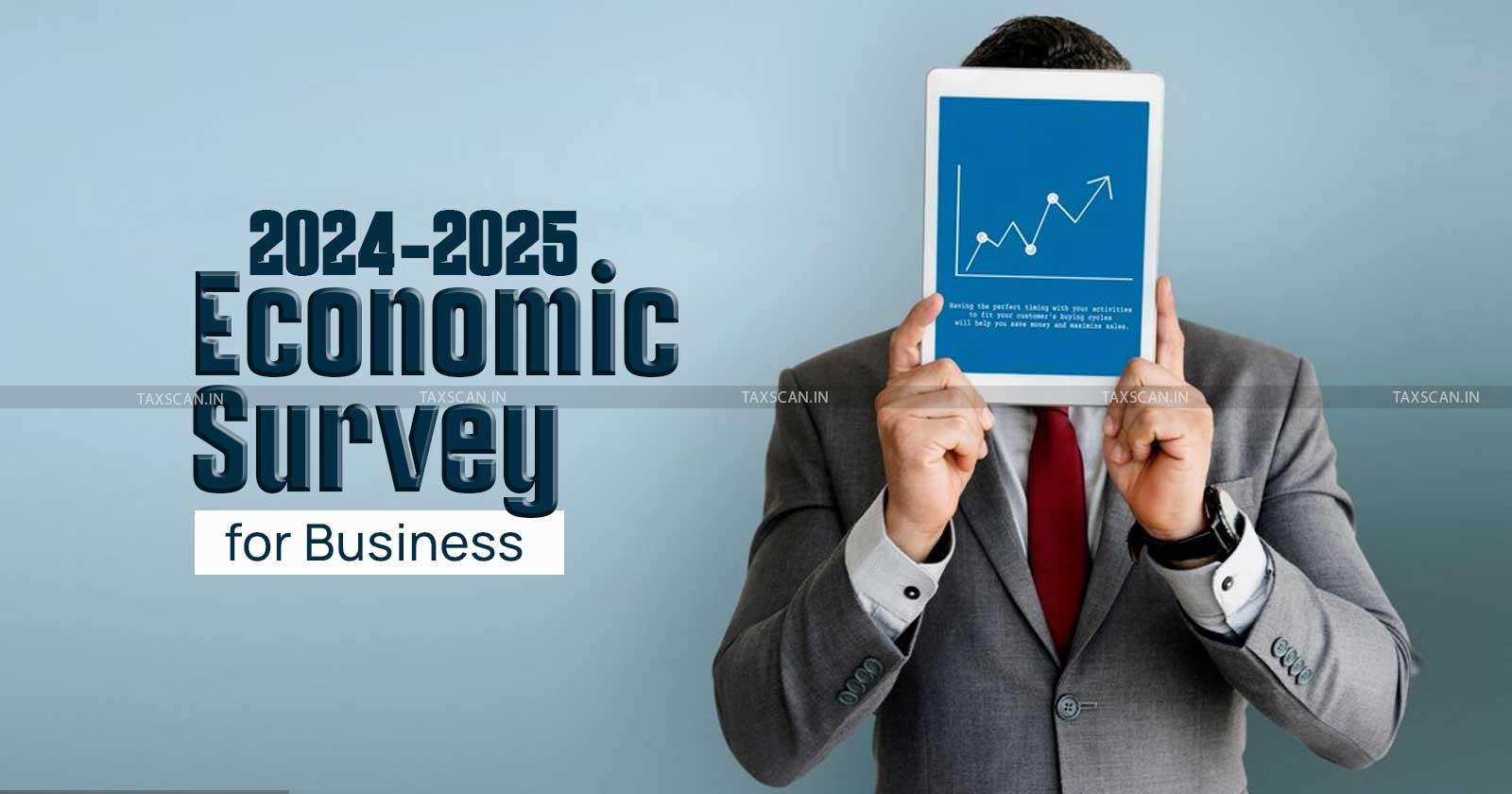Ease of Doing Business driven by Deregulation: Hints in the Economic Survey for Businesses

Ease of Doing Business – Deregulation – Hints – Economic Survey – Businesses – taxscan
Ease of Doing Business – Deregulation – Hints – Economic Survey – Businesses – taxscan
The Economic Survey 2024 – 2025 highlighted the critical role of state governments in promoting Ease of Doing Business ( EoDB ), which is not exclusively a central government mandate. India's ability to produce essential items at the volume and caliber needed to meet the infrastructure and investment demands of a developing economy is challenged.
For example, India's capacity to produce essential components such as polysilicon, ingots, and wafers for the solar energy industry is limited. The 2024–2025 Economic Survey Report recommended deregulation as a way to reduce corporate costs. As this mechanism will make a significant contribution to accelerating economic growth and employment amidst unprecedented global challenges.
India must do everything in its power to attract, support, and facilitate more international and domestic investment if it hopes to develop into a competitive and innovative economy. It won't be easy since established and rising economies that are determined to keep their industries domestic will compete for investment.
Complete Supreme Court Judgment on GST from 2017 to 2024 with Free E-Book Access, Click here
A call for "Ease of Doing Business 2.0," a state-led initiative aimed at drastically simplifying regulations, cutting tariffs and fees, and implementing risk-based regulations to address the underlying causes of business challenges, is the key clue regarding ease of doing business. In other words, states are taking the lead in reforming the business environment.
According to the Economic Survey report, states can alter the fundamental law to systematically deregulate laws on all of these topics. By changing subordinate regulations, states can also deregulate in cases when the Union government determines the primary law. As states look for deregulation prospects, they should take these options into account.
Reduction in Compliance Burden
Utilizing online platforms (such as the Income Tax portal, MCA21, and GST) to streamline tax filing and regulatory compliance simply compliance.To simplify the legal system, unnecessary laws and licenses should be removed.
The economic Survey report showed the importance of focusing on increasing logistics efficiency to strengthen India’s manufacturing and export capabilities. The studies revealed that the development of logistics hubs, investments in infrastructure, and policy reforms to improve supply chain efficiency were the measures. As the simplification of laws will enhance the investments, which ultimately lower costs for Indian businesses, making exports more competitive and enabling quicker, smoother movement of goods domestically and internationally.
Complete Supreme Court Judgment on GST from 2017 to 2024 with Free E-Book Access, Click here
Digitization of Business Processes
Using the SPICe+ site, businesses can incorporate online, cutting down on registration time.Single-window licensing and approval clearance, like India's National Single Window System (NSWS) and launch of regulatory compliance monitoring powered by AI are the digital initiatives taken by government.
The reports show that paperless e-BRC system has reduced costs for 2.5 million e-BRCs annually by over ₹125 crore, streamlined processes and helped exporters benefit from schemes under the FTP. The introduction of Directorate General of Foreign Trade (DGFT) ‘Trade Connect e-Platform’ aimed to transform the international trade landscape for Indian exporters, especially MSMEs.
The platform, developed in collaboration with key partners, including the Ministry of MSME, EXIM Bank, Department of Financial Services, and the Ministry of External Affairs, is set to address information asymmetry by offering exporters comprehensive support and resources. Another initiative, the DGFT Trade Facilitation Mobile App provides all information on FTP Updates, Import/Export Policy, Export/Import Statistics, the status of applications, and 24×7 virtual assistance.
Complete Supreme Court Judgment on GST from 2017 to 2024 with Free E-Book Access, Click here
Foreign Investment Liberalization
Increased Foreign Direct Investment (FDI) limits in sectors like retail, defense, and insurance through liberlization would help in increasing business. The survey reveals that India’s forex reserves surged to USD 704.9 billion in September 2024 before moderating to USD 634.6 billion as of January 3, 2025. The increase in reserves is attributed to stable capital flows, a balance of payments (BoP) surplus, and valuation gains.
Read More: Economic Survey 2024-2025 shows improved Forex Reserves
Insolvency Reforms
Another step is the Insolvency and Bankruptcy Code (IBC), which aims to resolve corporate failures more quickly.Reducing the typical time it takes to settle bankruptcy proceedings has an indirect impact on business expansion. According to the survey findings, a contemporary and all-encompassing framework for bankruptcy resolution for distressed enterprises has been introduced with the passage of the bankruptcy and Bankruptcy Code, 2016 (IBC/Code). The Code has reshaped the debtor-creditor relationship and had a lasting effect on the nation's banking industry by tackling financial distress and non-performing assets. Making voluntary liquidation processes simpler contributes to a smooth business exit.
By streamlining processes, lowering compliance costs, and promoting a pro-business atmosphere, deregulation has greatly improved the Ease of Doing Business. Deregulation has been the goal of governments all around the world, including India, in an effort to draw in investment, encourage entrepreneurship, and accelerate economic progress
Support our journalism by subscribing to Taxscan premium. Follow us on Telegram for quick updates


